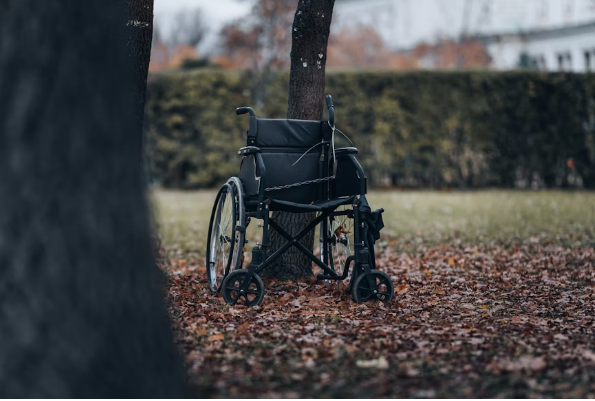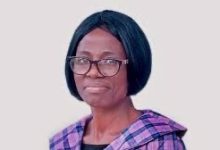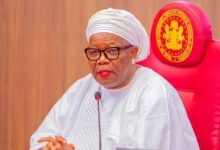
|
Getting your Trinity Audio player ready...
|
According to estimates, 50 per cent of Nigeria’s 25 million estimated People with Disabilities are women and girls.
Healthcare or Heartbreak? discrimination faced by women with disabilities.
On one occasion, Bilikisu Yakubu, a disability rights advocate and wheelchair user, visited a hospital in Abuja. Exhausted from the long wait, she dozed off. When she finally woke up the place was silent, and everyone had left.
No one woke her up or said anything. She observed that the hospital had no sign language interpreter, no visual notification system, and no staff support, making it clear the facility was not disability friendly.
“I was just left there,” she said. “They don’t know how to relate with people with disabilities.”
Bilikisu’s experience is not isolated. Many women and girls with disabilities in Nigeria continue to face discrimination, neglect, and stigma, especially when seeking sexual and reproductive health services. Despite the National Policy on Sexual and Reproductive Health and Rights of Persons with Disabilities (2018), implementation remains weak.
Another woman confided in Bilikisu: “Sister Bili, I have stopped going to the hospital whenever I am pregnant because of what they say. ‘You too? You dey get belle? You dey do that kind thing?’ Are we not human beings? Don’t we have blood in our veins?” Bilikisu said.
Healthcare Shouldn’t Hurt
The emotional toll of these encounters is significant. Bilikisu laments the mental strain such derogatory comments cause.
“We are already disadvantaged by our disabilities. When health workers treat us like we don’t deserve love or family, it damages our mental health. It makes us doubt ourselves.”
She described how assumptions by healthcare providers limit the kind of care women with disabilities receive. “I walk in for reproductive health care, but they assume I was there for physiotherapy. They don’t ask, they just conclude.”
In one disturbing encounter, Bilikisu requested a referral to a gynaecologist, only to be told by the consultant that she had no right to ask for such a specialist. “I had to advocate for myself right there in the hospital,” she said. “It is my body. I know what I need.”
Sexual and Reproductive Health?
The UN says sexual and reproductive health is a broad range of services that cover access to contraception, fertility and infertility care, maternal and perinatal health, prevention and treatment of sexually transmitted infections (STIs), protection from sexual and gender-based violence, and education on safe and healthy relationships.
Experiencing sexual and reproductive health means that a person has complete physical, mental and social well-being in all matters relating to their reproductive system and its functions. In everyday life, this means that people are able to have satisfying and safe sex lives, to have healthy pregnancies and births, and decide if, when and how often to have children.
Access to sexual and reproductive health services is a human right and should be available to all people throughout their lives, as part of ensuring universal health coverage. This not only contributes to improved health outcomes, but also to gender equality and wider development.
A Right, Not a Privilege
The National Policy on Sexual and Reproductive Health and Rights of Persons with Disabilities with emphasis on Women and Girls with disabilities, launched in 2018, clearly states that women and girls with disabilities (WGWDs) have the right to accessible, inclusive, and stigma-free sexual and reproductive health services. It aligns with international frameworks like the UN Convention on the Rights of Persons with Disabilities (CRPD), and commits to ensuring inclusive communication, physical accessibility, and provider training.
However, according to Balikis Amoa, a programme officer at the Disability Rights Advocacy Centre (DRAC), these provisions are far from reality. “Especially the deaf community many avoid hospitals because of the communication gap. There’s no sign language interpreter. For the blind, information isn’t available in Braille. Women with albinism also face exclusion from educational materials.”
She also pointed to physical barriers: “There are no ramps. Hospital beds aren’t adjustable. Facilities are not designed for them.”
“They Treat Us Like We Don’t Have Feelings”
Christopher Queen, another woman on a wheelchair, shared that the discrimination starts with the questions they are asked: “Who impregnated you? You too dey do? These are questions they don’t ask other women.”
Queen, like many others, has felt the sting of being treated as less than human. “We are often passed over for care. Health workers attend to others first like we don’t matter. But we are women. We have the right to give birth, raise children, get married, and love—just like everyone else.
Infrastructure and Empathy Needed
Dorcas Tanium, who is physically challenged, says that although she personally hasn’t faced verbal abuse, she has seen many others who are blind or deaf complain of poor treatment. The main issue she faces is the lack of accessible infrastructure.
Dorcas called on the government to address these gaps and for healthcare workers to show empathy: “Being kind doesn’t cost anything.”
“There’s no ramp at the hospital I visit. Someone always has to lift me in and out. But generally, I’m treated well.” She insists, though, that “just because I’m treated right doesn’t mean others are.”
Discrimination Against Persons with Disabilities (Prohibition) Act 2018
“We have a disability rights law in Nigeria, but not everyone understands it. It’s one thing to have the law written, and another to interpret and implement it. That’s where the real problem lies: implementation. There’s even a fine for discriminating against us, but without enforcement, the law means very little.”
The act includes several key provisions, and a five-year transitional period is provided for the modification of public buildings, structures, and automobiles to ensure accessibility for persons with disabilities, including those using wheelchairs.
This legislation criminalises discrimination against individuals with disabilities and imposes significant penalties on both corporate entities and individuals found guilty of such discrimination.
However, despite the laudable intentions behind the enactment of this legislation, significant challenges remain in its implementation. As the five-year transitional period ended, it is evident that many facilities and infrastructure are yet to be adjusted to meet the needs of persons with disabilities.
A Policy Without Implementation Is Just Paper
Despite the clear roadmap outlined in the 2018 National Policy, the situation on the ground remains deeply concerning. Commitments to inclusive communication, provider training, disability-friendly infrastructure, and the active involvement of OPDs (Organizations of Persons with Disabilities) have seen little meaningful implementation.
As the policy undergoes review, there is hope that the revised version will introduce concrete, actionable strategies, enforceable accountability measures, and sufficient budgetary allocations to ensure that the rights and sexual and reproductive health needs of women and girls with disabilities are fully addressed and no longer neglected.
Expert Opinion
Sussan Kelechi Ihuoma, a gender and social inclusion expert, cites the example of Ngozi, a wheelchair user who visited a clinic in pain only to be mocked by a nurse who asked, “Who even got you pregnant?” Humiliated and left untreated, Ngozi never returned to that clinic. This scenario, Sussan notes, is far from isolated; it reflects a disturbing norm.
According to her, many women with disabilities avoid hospitals not because they are careless or uninformed, but because their previous encounters were marked by ridicule, judgment, and outright neglect. The consequences of this discrimination are grave: delayed medical attention, undiagnosed health conditions, increased maternal mortality rates, and a growing mistrust in the health system.
Sussan emphasises that this kind of exclusion doesn’t just hurt feelings, it costs lives. She advocates for the urgent need to dismantle attitudinal barriers within the health sector and train professionals to deliver respectful, inclusive, and rights-based care. Until that happens, true healthcare access will remain a myth for Nigeria’s most marginalized women.
A Call for Action
Editor’s note: This article was first published on nigeriagrassrootnews by Hadiza Abdulrahman. Hadiza Abdulrahman, a multimedia journalist is a fellow of Africa Foundation for Young Media Professionals 2025 Women in Journalism, Gender Reporting Media Fellowship.






